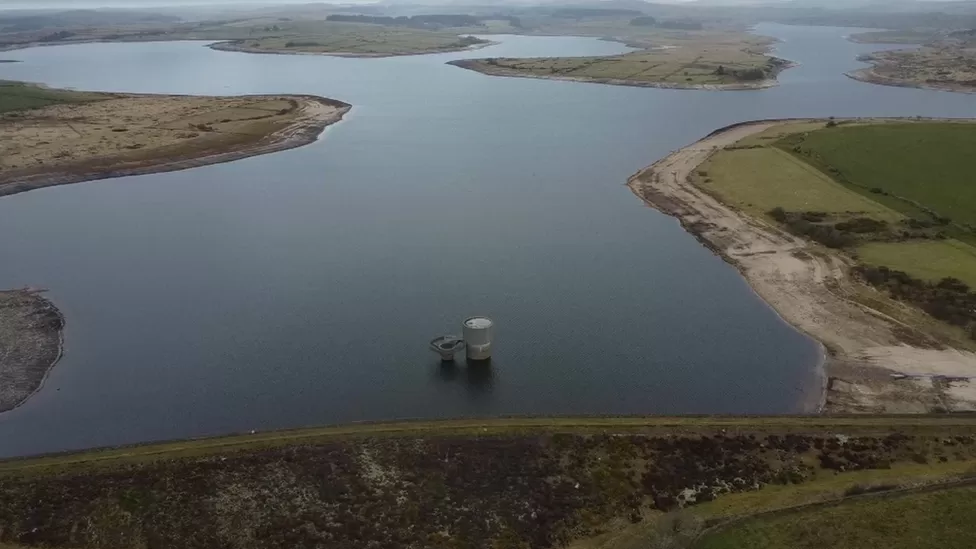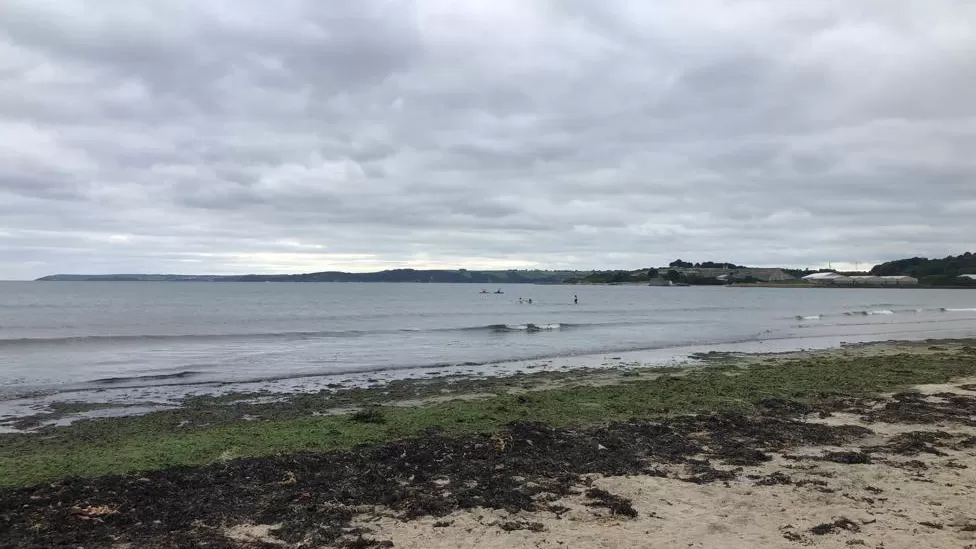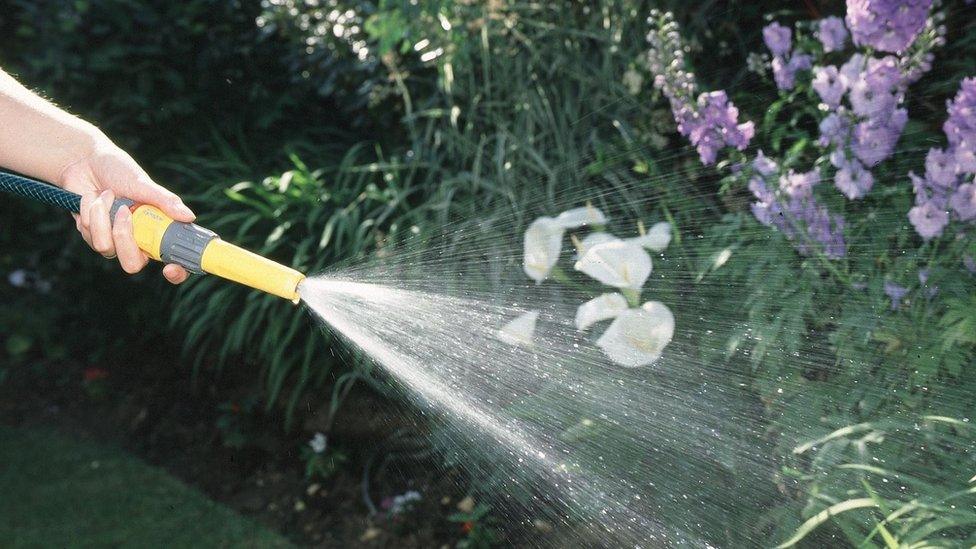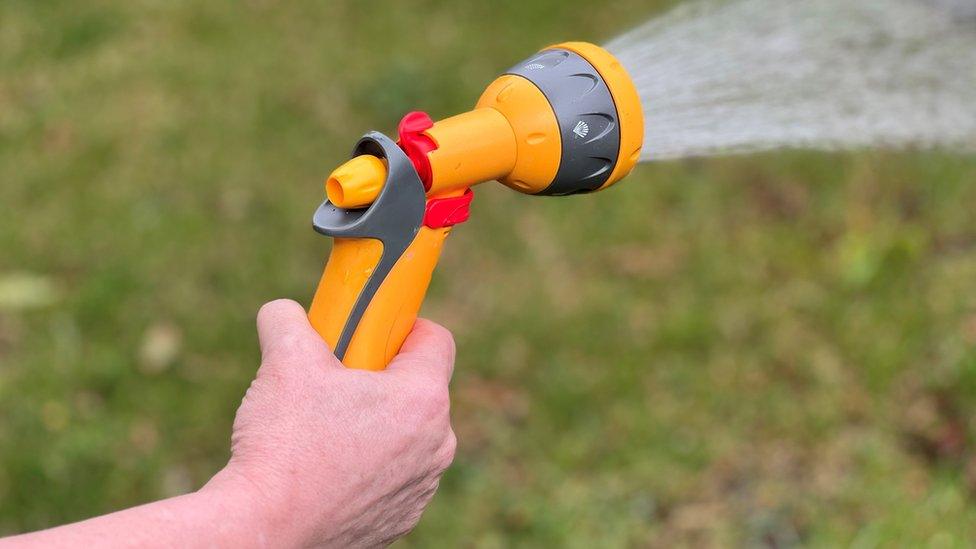South West Water 'not well prepared' for 2022 drought, emails claim
- Published

Colliford Reservoir is one of three strategic reservoirs for Devon and Cornwall
South West Water (SWW) was "undoubtedly underprepared" for a drought in 2022 but has since taken "urgent action" to ensure resilience, a watchdog says.
Ofwat, the regulator for England and Wales, was responding to Environment Agency documents obtained by Greenpeace and shared with the BBC which described SWW as "not well prepared".
Ofwat said the company had to "closely manage its water resource position".
SWW said it "strongly rejected" any suggestion it was not prepared.
"Despite facing a once-in-a-generation drought in the South West, no customer went without water supply," the water firm said.
'Acted too late'
The summer of 2022 triggered the start of the first hosepipe ban in Cornwall for 26 years amid the continuing drought.
Freedom of Information (FOI) documents released to Unearthed, the Greenpeace journalism project, detail email exchanges during that time in relation to Devon, Cornwall and the Isles of Scilly.
One email dated July 2023 - from the Environment Agency (EA) to Ofwat - said: "SWW were not well prepared for drought, and a lack of resilience in their supply was exposed by the dry, hot weather in 2022."
It added: "SWW acted too late which presented a genuine risk of loss of supply in West Cornwall."

A planned desalination plant could take seawater from St Austell Bay
The email from the EA to Ofwat was sent on 21 July 2023, when water restrictions - or temporary usage bans (TUB) - were still in force in Devon and Cornwall.
It said: "The lack of preparedness and planning has had a huge impact on staff resources at the company and in the EA in order to recover from the drought and improve future resilience.
"This has undoubtedly had an impact on people and the environment, including customers who still have TUBs in place."
Doug Parr, Greenpeace UK's policy director, questioned whether people in the South West were "getting what they are paying for".
"If there is a failure to manage water in the face of droughts that we know are going to get worse because of climate change, that's a failure of management and it's a failure of planning," he added.
In response to the release of documents, Ofwat said: "South West Water was undoubtedly underprepared for the drought in 2022.
"They have since taken urgent action and have invested significantly to ensure better future resilience. The region is now in recovery from drought and the company must continue to closely manage its water resource position."
'Good faith'
SWW has said previously it was "on track" for its two biggest strategic reservoirs, Colliford in Cornwall and Roadford in Devon, "to recharge to 90% capacity in March 2024".
Meanwhile, Cornwall could have a desalination plant built in 2024 to produce drinking water from seawater.
SWW said: "We strongly reject any suggestion that we were not adequately prepared for the risk of drought or that we did not operate in good faith with the regulators."
It said it had "successfully maintained" a "robust supply of water" to more than 3.5 million customers and 10 million visitors.
It said: "We are absolutely confident in the actions we took that led to no loss of supply, which have increased water resources by 25% in Cornwall and 12% in Devon since 2022.
"We continue to work openly and transparently with all our regulators on various matters, including how we ensure the robust and resilient supply of water amid a rapidly changing climate."
The EA, which is responsible for water quality and resources in England, said: "Since the onset of drought in 2022 we, along with Ofwat, have worked with South West Water to ensure they have robust plans in place to recover from the drought and to improve the resilience of our supplies so they are prepared for the effects of a changing climate."

Follow BBC Cornwall on X (formerly Twitter), external, Facebook, external and Instagram, external. Follow BBC Devon on X (formerly Twitter), external, Facebook, external and Instagram, external. Send your story ideas to spotlight@bbc.co.uk, external.
- Published28 December 2023

- Published29 June 2023

- Published19 September 2023
